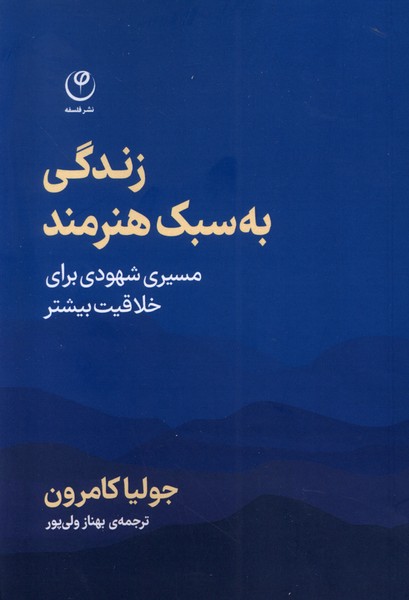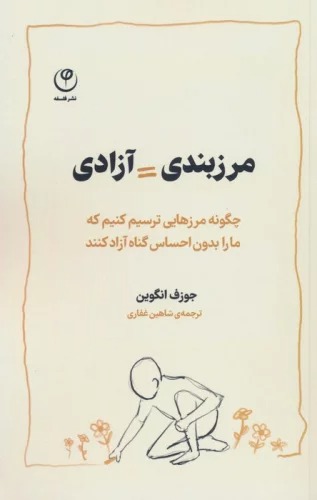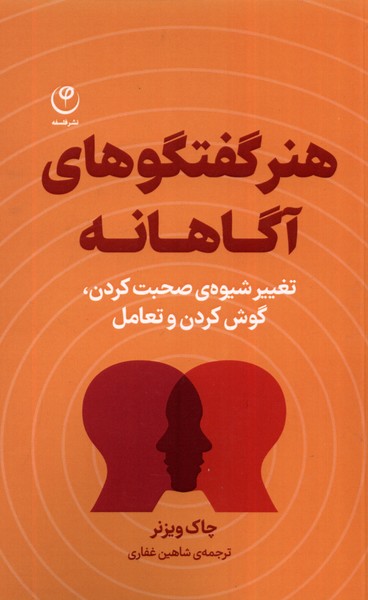روانشناسی باور الفارسية 1402
Ravānshināsī-yi bāvar
221 SEK
مشاركة
Wishlist
العنوان الأصلي:
The Psychology of Belief
ISBN رقم:
9786227857320
المترجم:
'abas Zaydī'zadah
الناشر:
Falsafih
الفئة العمرية:
البالغون
الصفحات:
420
الوزن:
348 g
أبعاد المنتج:
14 x 21 x 3٫8 cm
غلاف الكتاب:
کتب کرتونیه للأطفال
According to Nancy S. Kim, Every person has very different beliefs from other people. In fact, people differ from each other in the field of political beliefs; They differ from each other in terms of moral beliefs; They have different beliefs about mental disorders; And they even believe in various superstitions. It is because of these various and even conflicting beliefs that Nancy S. In the book Psychology of Belief, Kim asks: "Why are the beliefs of each person so contrary to the beliefs of others?".
Nancy S. By gathering theories and empirical evidence from social psychology, developmental psychology, and cognitive psychology, Kim examines our different beliefs and by referring to new research that has been conducted in these fields, shows how several psychological factors, including memory, reasoning ability, Judgment, emotions, personality, and cognitive development shape our beliefs. This book also deals with philosophical issues related to beliefs and to clarify the discussion, it also refers to different theories in the history of philosophy and epistemology.
The book Psychology of Belief examines a very wide range of beliefs. For example, one chapter of the book is dedicated to political beliefs, another to pseudoscience beliefs, and another to conspiracy theories. In the chapter of the book dedicated to conspiracy theories, many motivational factors, personality traits, attitudes, and social factors affecting people's belief in conspiracy theories are evaluated. In this chapter, the role of the Internet in spreading conspiracy theories is discussed, and tested solutions to reduce people's belief in these theories are examined.
more
از نظر نانسی اس. کیم هر فرد باورهای بسیار متفاوتی با دیگر افراد دارد. در حقیقت، افراد در زمینهی باورهای سیاسی با یکدیگر متفاوتند؛ در زمینهی باورهای اخلاقی با یکدیگر متفاوتند؛ در مورد اختلالهای روانی باورهای متفاوتی دارند؛ و حتی به خرافههای متفاوتی هم باور دارند. به علت وجود همین باورهای متفاوت و حتی متعارض است که نانسی اس. کیم در کتاب روانشناسی باور میپرسد: «چرا باورهای هر فرد تا اینحد مخالف باورهای دیگران است؟».
نانسی اس. کیم با گردآوری نظریهها و شواهد تجربی برگرفته از روانشناسی اجتماعی، روانشناسی رشد و روانشناسی شناختی، باورهای متفاوت ما را بررسی میکند و با ارجاع به پژوهشهای جدیدی که در این حوزهها صورت گرفتهاند، نشان میدهد چگونه عوامل روانشناختی متعددی از جمله حافظه، توانایی استدلال، قضاوت، احساسات، شخصیت و رشد شناختی، باورهای ما را شکل میدهند. این کتاب، به مباحث فلسفی مرتبط با باورها نیز میپردازد و برای روشنتر کردن بحث، به نظریههای متفاوت در تاریخ فلسفه و معرفتشناسی نیز اشاره میکند.
کتاب روانشناسی باور ، دامنهی بسیار وسیعی از باورها را مورد بررسی قرار میدهد. برای مثال، یک فصل کتاب به باورهای سیاسی، فصلی دیگر به باورهای شبهعلم و فصلی دیگر تماما به نظریههای توطئه اختصاص یافته است. در فصلی از کتاب که به نظریههای توطئه اختصاص یافته است، بسیاری از عوامل انگیزشی، ویژگیهای شخصیتی، نگرشها و عوامل اجتماعی تأثیرگذار بر باور افراد به نظریههای توطئه مورد ارزیابی قرار میگیرند. در این فصل، به نقش اینترنت در انتشار نظریههای توطئه پرداخته میشود و راهکارهای آزمونشدهای برای کاهش باور افراد به این نظریهها بررسی میشوند.
more















